Music is the universal language
“Glory to God in the highest heaven, and on earth peace to those on whom his favor rests.” - Luke 2:14
General Interest
“I wish somebody would have told me that”: The important lesson that Jason Isbell would give to any aspiring guitarist when they buy a guitar

Jason Isbell has shared a golden nugget of advice for new and young guitar players that will help them avoid quitting at an early stage.
According to the singer-songwriter, the most important thing to do when buying a budget instrument is to ask the store to get it set up for you before you leave. By spending that little bit of extra cash to give a cheap instrument a bit more comfortability, Isbell thinks players will be less likely to give up on learning – and they’ll still save money in the long run.
Speaking to Matt Sweeney of the Guitar Moves podcast, Isbell says, “Get it set up. Spend the 50, or 80, or 100 bucks, and before you leave the music store let them set it up for you… [Let them] set the action right, make sure the frets are level, make sure it’ll stay in tune.
“That is so huge and I wish somebody would have told me that when I was a kid, because of course you’re not gonna be able to afford an incredible instrument when you’re that age. If you spend the extra time, the extra money, you get home and you can play it. It makes all the difference in the world.”
On a similar note, Sweeney notes that playing guitar can hurt a fair amount when you first start playing, so getting things adjusted can make a world of difference. “And the old guys will say, ‘It’s supposed to, you’ll get the calluses.’ You don’t want people to stop playing because it hurts,” Isbell adds. “You don’t wanna quit.”
You can check out the podcast below:
Isbell released his new album, Foxes In The Snow, back in March. He is touring throughout 2025 – find out where you can catch him live via his website.
The post “I wish somebody would have told me that”: The important lesson that Jason Isbell would give to any aspiring guitarist when they buy a guitar appeared first on Guitar.com | All Things Guitar.
Family-run retailer Hobgoblin Music launches Crowdfunder to secure its future across UK high streets

Retailer Hobgoblin Music has launched its first ever crowdfunding round, with hopes to keep its shops on the high streets of the UK.
The news lands after bleak announcements regarding the futures of other retailers like PMT and GAK, both of which have sold their stock to Gear4music following financial struggles.
Hobgoblin Music is a family business that was founded in 1976, with nine shops operating throughout the United Kingdom. It is described as a “beloved destination for folk music enthusiasts from around the world”, stocking a wide product range in acoustic and folk music instruments.
- READ MORE: Breedlove and Bedell Guitars sold to “two individuals who have spent a lifetime immersed in music”
According to a press release shared with Guitar.com, Hobgoblin Music aims to raise £190K in exchange for a 9.5 percent equity stake in its business. Funds raised will also be used to drive increased sales through the purchase of fast-selling, high-margin stock, leading to a sustainable increase in profit margins.
The company, which will celebrate its 50th anniversary next year, employs over 50 musicians across the UK and also supports live music in areas local to its stores. Even Paul McCartney has shared his love of Hobgoblin Music, having said that its London shop is possibly his “most favourite”, and that “the staff there are so helpful and friendly, and we always have a laugh”.
Hobgoblin Music was set up by husband and wife Pete and Mannie McClelland, who “were frustrated by how few interesting or unusual musical instruments were readily available, despite high demand from musicians”.
Today, the pair are still directors at Hobgoblin Music, along with their daughter, Nicola Rain, who serves as its executive director and co-owner. Although the company also sells online, it is “committed to keeping stores open”, as it believes trying a variation of different types and styles of instruments is vital.
Rain comments, “I’ve been immersed in this business for as long as I can remember and I’m so proud of what my parents have built up over the years. The experience of visiting a music shop and benefitting from the expertise of other musicians can’t be replaced by online shopping. We’re determined to keep music shops alive and firmly believe the country would be poorer without them – trying out new instruments in a shop is such a key part of the musical journey.”
Hobgoblin currently has stores in Bristol, Leeds, Manchester, London, Southampton, Canterbury, Edinburgh, Brighton and Birmingham.
An early access launch to the first Crowdfunding round is now open, and individuals can register for this via Hobgoblin Music’s crowdfunding page. You can also find out more about the company via the Hobgoblin Music website.
The post Family-run retailer Hobgoblin Music launches Crowdfunder to secure its future across UK high streets appeared first on Guitar.com | All Things Guitar.
“He looks at the way the black finish is cracking, takes the finish off, and there's a Paisley staring at him”: Brad Paisley thought he had bought just another ’60s refin Tele – turns out, there was a $30,000 guitar hidden under the spray paint
“He goes, ‘You’ve got to put a battery in the back.’ I was like, ‘A battery? What are you talking about?’” Zakk Wylde on how a student introduced him to a pickup pairing that would end up defining his sound with Ozzy Osbourne and beyond
“He dug around and said, ‘You know what this is? It’s one of the Beach Boys amps’”: Ben Harper’s Dumble was inexplicably found at a yard sale – and it had previously belonged to one of the biggest rock bands of all time
“A sleek new take on a classic machine”: Jackson officially launches its affordable Surfcaster reissue – bringing the cult offset back for a new generation of heavy players
UK music retail chain PMT placed into administration, permanently closing all stores with immediate effect

PMT, one of the UK’s largest musical instrument retail chains, has been placed into administration, making it the latest in a string of musical instrument retailers to shut its doors.
The company’s 11 stores across the UK and one warehouse in Liverpool have been closed with immediate effect. According to Insider Media, 96 people have already been made redundant, with 48 people retained to assist administrators. PMT also operated a significant online store, which has now been taken offline.
All of PMT’s remaining stock has been sold to UK-based online retailer Gear4Music for an estimated cost value of “up to £2.4 million”, alongside “certain intangible assets” including websites, trademarks and commercial data, worth up to £1.2 million.
S&T Audio Limited – trading as PMT – was the fourth largest retailer of musical instruments in the UK in terms of revenue with a reported annual turnover of £43 million for the year that ended 30 April, 2024. It was also the largest chain of brick and mortar music stores left in the country, with locations in major cities.
A press release from administrators Interpath shared with Guitar.com notes a “variety of challenges in recent times”, including the competitive pricing of instruments shrinking the margins of top-branded gear, “fragile consumer confidence” affecting the sales of high-end products, and rising costs associated with rent, business rates and employees.
It also explains how a string of recent insolvencies across the musical instruments sector have “tightened” credit terms across the supply chain, leading to a “detrimental impact on PMT’s cashflow”.
PMT’s directors initially sought to explore options prior to filing for the appointment of administrators, including a reorganisation of their store estate, as well as sale, refinance and investment options. However, no solvent option was available.
Rick Harrison, managing director at Interpath and joint administrator alongside Howard Smith, comments: “It’s been a tough few years for specialist music equipment retailers who have battled headwinds including rising costs, dwindling margins and the rising cost of living affecting consumer behaviour. Unfortunately, despite the best efforts of the board, in the case of PMT, these challenges proved too difficult to overcome.
“While we are pleased to have concluded a sale of the stock and other assets to Gear4music, our immediate priority is to provide support to those employees who have been made redundant, including supporting them with claims to the Redundancy Payments Service.”
PMT’s 11 brick-and-mortar stores included locations in Birmingham, Bristol, Cardiff, Leeds, Manchester, Newcastle, Northampton, Norwich, Nottingham, Oxford and Romford, as well as a warehouse facility in Liverpool. There was also a store in Cambridge that closed without warning last week.
The post UK music retail chain PMT placed into administration, permanently closing all stores with immediate effect appeared first on Guitar.com | All Things Guitar.
“I’m not a guitar player – I play THAT guitar” how Khruangbin recreated their unique voice on their first signature instruments

There has always been an element of belief behind Khruangbin’s music, but it’s perhaps become more important than ever in the here and now. The Texan trio emerged from the pandemic as an arena-sized draw thanks to their ready-made salve of a record Mordechai, but their approach to writing and performance hasn’t been beaten into a new shape by the demands of relative ubiquity. Instead, it remains grounded in the simpatico melodic sensibilities of guitarist Mark Speer and bassist Laura Lee, with winding, sun-bleached hooks popping and whirring over drummer Donald ‘DJ’ Johnson’s supine grooves.
So while their audiences sometimes spiral into the tens of thousands these days, each person in the room is still being challenged to follow the music along unfamiliar paths, where dubby bass meets lead lines that snake in and out of ringing harmonies. “All you can see are maybe the first 100 people and you’ve got to trust that it’s resonating,” Lee observes. “And, actually, most of the time the trust comes from us leaning into playing with each other. If we do it, then they’re gonna feel it. It’s deep.”

Good Hangs
Appropriately, Khruangbin’s recent album A La Sala was chiefly an exercise in reconnecting with the band’s low-stakes origin as friends hanging out in a barn in rural Texas, digging up sounds and jamming them out. Cutting back against the Tom Tom Club-gone-desert-rock grain of Mordechai, it returned them to a vocal-agnostic wash of melodies, counter melodies and snappy rhythms, propelled by worn-in chemistry and a magpie’s eye for sonic touchstones.
It was a work by musicians who understand what they’re about, patient and certain. “I remember when we first started making music it seemed very subversive that we were instrumental,” Lee says. “It might have been challenging but [listeners] reward themselves with that breath.”
Lee and Speer have taken a similarly deliberate, unfussy approach to their first signature instruments. In collaboration with Fender the duo are about to put out a Jazz bass and Strat that are equal parts functional and aspirational. Speer’s model is fashioned after the only guitar he ever plays: an early 2000s reissue done up with single-coil-sized humbuckers in the neck and bridge that has been around the block with him a couple of hundred times over the past 20 years and change.
 Mark Speer and his signature Fender Stratocaster. Image: Fender
Mark Speer and his signature Fender Stratocaster. Image: Fender
“If someone handed me their guitar I’d be like, ‘Wow, what a nice instrument,’ but I won’t sound very good on it,” he says. “I’m used to mine. I’m not a guitar player – I play that guitar. I’ve been using that one thing for the whole time. I know exactly where certain notes are going to sing more than others. Or if I play here versus here, I can really control the timbre of where things are happening and why – the volume knob, things that I do against the gain structure, it’s all part of the voice. Really, it’s my voice, right?”
Tone-hounds will be pleased to know that Speer’s signature is wedded to this reality. Reflecting his own setup, it’s home to DiMarzio Pro TrackTMs either side of a 70s Strat pickup in the middle, with jumbo frets, a synchronised tremolo and Graph Tech saddles and string trees. “A lot of those adjustments were made from a pragmatic standpoint,” he says. “Literally so I could work more – the Graph Tech saddles were there because I just don’t want strings to break that often. When you’re a struggling working musician, buying strings all the time is not something you like doing.”
“The guitar is very similar to my main one and that was the whole point,” he continues. “It also feels the same way. The bit that routes the body out – it was a discontinued way they used to do it. They were very kind to bring that back. I think they just went and found the bit and put it back on the router to make it.”
 Laura Lee and her signature Fender Jazz Bass. Image: Fender
Laura Lee and her signature Fender Jazz Bass. Image: Fender
Math Problem
Lee’s bass story runs back to the late ‘00s and her tenure as a maths teacher, a job she ditched to head out on tour with Speer and shoegaze noisemaker Yppah only a few months after picking one up for the first time. Soon after, they decided to form Khruangbin, a band that’s always viewed her instrument as a melodic voice as well as something that’ll rattle around in your chest. Her Jazz bass is a dream fulfilled in many ways – for years she’s been using a budget Fender-alike from SX. “I played a knockoff Fender because I couldn’t afford a real Fender when we started,” she says. “Now my signature model will be a real Fender. There’s something pretty glorious about that.”
A marriage of vintage white and chrome that culminates in an uber-retro chunky bridge cover, Lee’s guitar is kitted out with DiMarzio Ultra JazzTMs, plus concentric volume and tone knobs for each pickup, a custom U-shape neck and a rosewood fingerboard. “I had just started playing bass when I came to Mark and DJ saying, ‘Let’s start a band,’” Lee says. “Mark helped me set up my bass to be really good for a young player.”
“The strings don’t buzz because of the humbuckers he encouraged me to put in,” she adds. “Why sit and be so frustrated with your strings ringing out as a young player? Focus on actually learning how to play. I liked the sustain that it was giving me, and I liked the non-buzziness of my sound. That is up to you now. But, for me, I got the tone that I wanted as a young player. I hope that my bass can be suited to a young player, or can make a more expert player feel young in spirit.”
Trust Fall
Much like trust, that feeling of youthfulness is an important part of Khruangbin’s make-up. It’s remarkable that, even as Lee points out how little bass she’d played before starting the band, their sound appeared dialled in from minute one. If there’s a reason that A La Sala’s retrospective approach felt a little like coming home then it’s because most of its constituent parts were there on the band’s 2015 debut The Universe Smiles Upon You. There are some major non-musical factors to consider in that – shared histories playing in church bands, for example, or the cultural kaleidoscope of Houston – but fundamentally it’s because they were willing to work things out in a room together, pushing for something honest rather than striving for something confected.
“I’m thinking about the translation of these things live,” Lee reflects. “There are these songs where we’re playing different things and then we merge to play the same melody. It’s like we’re singing together. I feel like those might be the most powerful moments from an audience perspective. There’s something really simple about it. We’re three instruments and two of them have the ability to make melodies. Leaning into that feels like who we are. At the start of the band, Mark really let me lead. I think he found my beginner’s mind very beautiful – it would come up with things that he could never come up with. You can never go backwards and approach an instrument like a new person again. I think it allowed him to be a beginner, in a way. He had to play around what I created, and that was an exciting prospect for him.”
“It might be frustrating, like, ‘What? This doesn’t make any sense!’” Speer chimes in. “But, I mean, you can get bogged down in a theory and why this makes sense, or why this is right or wrong. But, who cares? Make music that makes you feel something – that’s really the whole point. If it’s wrong, but I feel great listening to it, well, then it’s very right, isn’t it?”
The fourth aspect of Khruangbin’s sound that needs considering at this stage is nothingness – the gaps that they leave, sometimes heavy with possibility and other times only as red herrings. They have embraced the classic power-trio dilemma and opted not to fill things out in a manner that would require a few extra pairs of hands on stage, allowing their songs a sense of possibility even within the constraints of their make-up. When this aspect of their sound is put to them, Lee and Speer respond in a manner that’s both philosophical and practical, which seems fitting. “We’re so inundated with visual and sound pollution,” Lee observes. “People rarely are not listening to anything. You’re in an Uber or at a train station, you’re walking with your headphones on. It’s almost rare that it’s quiet.”
“Initially, the pedals I was bringing on board were very simple: a wah, distortion, a reverb,” Speer adds. “The echoes and phasers and choruses came in much later. That [early] thing was us in the barn playing with relatively simple signal chains. It’s like, ‘Well, what can we get rid of?’ I need to be able to play the melody, so if I’m getting rid of the chords, now you’ve got bottom and you have top, and there’s nothing in the middle, which is nice. Especially in this day and age, there are layers upon layers. There’s no space in much of the music I end up hearing. I think with this there’s really not a whole lot in the middle, but there are sounds from the barn or birds or wind or trees. It gives the listener a place to live and to think. There’s space for mystery in there.”
Find out more about the Khruangbin signature instruments at fender.com
The post “I’m not a guitar player – I play THAT guitar” how Khruangbin recreated their unique voice on their first signature instruments appeared first on Guitar.com | All Things Guitar.
“A new type of product”: Line 6 ushers in a bold new era of amp modelers with the Helix Stadium – an extensively upgraded family of touchscreen-equipped floorboards that take the term ‘all-in-one rig’ to unprecedented heights
“The catalog proclaimed the instrument to be: ‘For the young artist with a flair for showmanship!’”: Guild Starfires appeared in the hands of The Kinks’ Dave Davies and Jerry Garcia, and shook up the electric guitar scene in the early '60s
Roland Announces BOSS Effects Pedals Plug-In

Introducing the BOSS Effects Pedals plug-in from Roland Cloud, bringing the iconic sound of BOSS compact pedals to your computer music production. With faithful recreations of classic models like the DS-1 Distortion and OD-1 OverDrive, this plug-in offers premium processing for guitar, bass, keyboards, vocals, and more.
Roland announces the BOSS Effects Pedals plug-in, the latest classic software effect available on Roland Cloud. Since debuting in 1977, the colorful BOSS compact pedal lineup has been loved by generations of musicians. The BOSS Effects Pedals plug-in brings the authentic BOSS compact pedal experience to computer music production for the first time, delivering premium processing for guitar, bass, keyboards, vocals, and beyond.
BOSS, Roland's guitar products division, is well known for its expansive lineup of compact pedals. They’re used by everyone from beginners to professionals, and numerous legends have relied on various models for their signature sounds and the creation of the greatest recordings of all time. To date, over 140 unique BOSS compact pedal models have been produced, well over 19 million units have been sold, and many have remained in continuous production for decades.
The BOSS Effects Pedals plug-in can be loaded with one effect at a time from an onboard library. Each delivers the genuine sound and response of the pedal it’s based on, faithfully recreated by the same company that developed the original designs. The friendly interface mirrors the simple operation of the hardware, providing fast access to great tones. Extended features are also available, including input and output controls for dialing in levels and tempo sync for time-based effects.
The initial launch of the BOSS Effects Pedals plug-in features eight of the most famous BOSS pedals: the OD-1 OverDrive, PH-1 Phaser, SP-1 Spectrum, SG-1 Slow Gear, CS-1 Compression Sustainer, TW-1 T Wah, SD-1 SUPER OverDrive, and DS-1 Distortion. Over time, the core library will be populated with an ever-expanding selection of models derived from the historic hardware lineup.
The BOSS Effects Pedals plug-in is available with Roland Cloud Ultimate membership, which new users can try for free with a 30-day all-access trial. Signing up for a free Roland Account provides access to a function-limited demo version for evaluating the plug-in without signing up for membership.
Roland Cloud is also home to a universe of creative tools for computer-based music production, including JC-120 Jazz Chorus and RE-201 Space Echo plug-ins, software versions of vintage Roland instruments, ZENOLOGY, Sound Packs, Wave Expansions, GALAXIAS, Zenbeats, and much more.
For more information, please visit roland.com.
Brian Wilson, Beach Boys creative leader and pop visionary, dies at 82

Beach Boys leader Brian Wilson has died aged 82. In an Instagram post made on Wednesday (11 June), his family confirmed his passing.
“We are heartbroken to announce that our beloved father Brian Wilson has passed away,” the post reads. “We are at a loss for words right now. Please respect our privacy at this time as our family is grieving. We realise that we are sharing our grief with the world.”
Born in Inglewood, California in 1942, Wilson founded and became creative leader of the Beach Boys – alongside his brothers Dennis and Carl, their cousin Mike Love and friend Al Jardine.
The group were instrumental in changing the course and sound of pop music, with such hits including Wouldn’t It Be Nice, God Only Knows and Surfin’ U.S.A.
The outfit have released 29 studio albums over the course of their over-60-year career, perhaps none more landmark than 1966’s Pet Sounds, which, produced almost entirely by Brian Wilson, is regarded by many as one of the greatest records of all time, featuring the likes of Wouldn’t It Be Nice and God Only Knows.
This is a breaking story and is being updated.
The post Brian Wilson, Beach Boys creative leader and pop visionary, dies at 82 appeared first on Guitar.com | All Things Guitar.
“Can you imagine Kramer being more successful than Fender and Gibson? It sounds crazy, but Eddie Van Halen made that happen”: H.E.A.T’s Dave Dalone on taking rock back to the future, learning from Gary Moore, and why he's a Kramer man through and through
“He said, ‘It’s really cool when you watch someone a lot and then you get to meet them in person’”: Marty Schwartz recently bumped into Slash – and it turns out the guitar legend had been watching his videos to brush up his blues chops
“To scare Randy, I pulled the gun and fired it into the ceiling”: How a drunken fight led to Kelly Garni being booted out of Quiet Riot
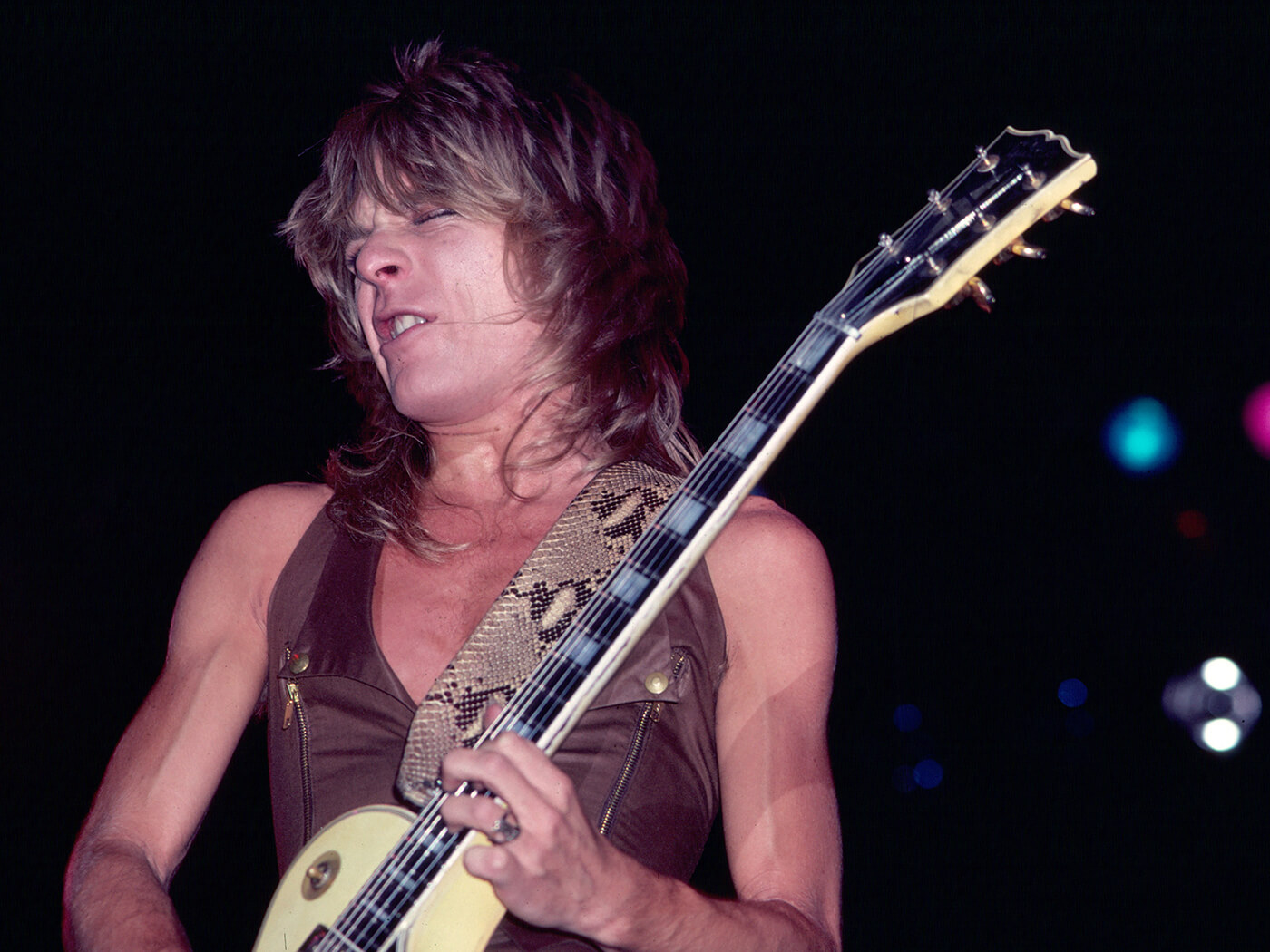
From featuring on Ozzy Osbourne‘s first two solo albums as co-songwriter and founding Quiet Riot, the late Randy Rhoads was truly in the eye of the heavy metal storm – and that came with plenty of chaos.
In a recent interview with Guitar World, Quiet Riot co-founder Kelly Garni has reflected on the drunken altercation with Rhoads that led to him being booted from the band in 1978. Essentially, he pulled out a gun during an argument over vocalist Kevin DuBrow. “I was unhappy for quite a while…” Garni explains. “This all finally came to a very drunken conclusion.”
- READ MORE: “It’s weird because none of us are joyous… at all” Inhaler are making brighter music in darker times
As Garni puts it, the unhappiness stemmed from a dislike of DuBrox, as well as a feeling that Quiet Riot had hid a brick wall. “We were stalled,” he says. “We weren’t going anywhere, and weren’t doing anything.”
“It just seemed like rinse and repeat,” he continued. “There was no progress. We weren’t making any money, and management gave us an allowance every week, which, in my case, was forty bucks a week to live on.”
Garni decided to voice his concerns the day after a fateful fire at LA club, Cabaret. It seemed to spark something reckless within Garni’s mind; as everyone panicked, distracted by the fire, the bassist would go and steal “about 25 bottles of liquor”. The next day, he’d invite Rhoads over for a booze up.
“I called up Randy and said, ‘Hey, the Cabaret caught fire, and I robbed the bar,’” Garni recalls. “’I got all this booze over here. Come over and party.’ And he did.”
The pair would drink there way through the looted liquor, knocking back drinks for “four or five hours”. Inebriated, Garni’s loose lips would cause him to reveal his unhappiness – and it would also reveal his issues with DuBrow.
However, the discussion soon soured. “We started discussing the Kevin problem… It got out of hand,” he admits. “I told Randy to leave. He refused. And I lived in the Barrio in Van Nuys, a pretty dangerous place, and kept a gun hidden in the couch cushion.”
“So, to scare Randy, I pulled the gun and fired it into the ceiling, thinking that would make him leave. But Randy was fearless. He didn’t leave. He charged right at me.”
Of course, Garni didn’t actually want to shoot Rhoads – so he made sure it was quickly removed from the picture. “The gun was automatic, so it reloaded and cocked itself,” he remembers. “So, I chucked that aside to get it out of the mix, and the fight was on.”
After a tussle, Garni decided it was time to pay DuBrow a visit. “I was going to finish the job; I was going to go, well, I thought I’d kill Kevin,” Garni admits. “I don’t think I actually would have; that’s just not in me. But I certainly would have scared him, and I probably would’ve gotten the cops called on me there.”
The police pulled Garni over and very quickly clocked he was not fit to drive. “They pulled me over in front of my house,” he says. “I had a gun in a shoulder holster under my jacket, and off to jail I went. Once Kevin and management heard about the whole episode, they said, ‘Okay, that’s it. He’s got to go. He’s too big of a problem.’ That was it.”
While the drunken evening would result in Garni being booted out of the band, he’s pretty content with how things ended up. The bassist went on to train up as a paramedic.
“I get told, ‘You’re the guy who tried to kill Randy Rhoads,’” he laughs. “I get all kinds of stuff, but I laugh it off and say, ‘You weren’t there. You don’t know!’ So, Randy needed to be with better people. It was never going to be pretty, but after nine years of playing together, how could it ever be a friendly thing?”
The post “To scare Randy, I pulled the gun and fired it into the ceiling”: How a drunken fight led to Kelly Garni being booted out of Quiet Riot appeared first on Guitar.com | All Things Guitar.
Dann Huff Rig Rundown
The all-star producer invites John Bohlinger to his home studio for a glimpse of his most treasured gear.
Veteran producer and behind-the-scenes guitar superstar Dann Huff released his debut solo album, When Words Aren’t Enough, on May 30, but his career began long before that. He’s been making records and playing guitar for roughly 50 years, working with everyone from Taylor Swift to Rodney Crowell to Michael Jackson.
His home studio is where the magic happens, and for this Rig Rundown, he invited PG’s John Bohlinger over to talk about his career, his new record, and the best bits of gear he’s played along the way. Keep an eye out for our feature on Huff online and in our August print issue.
Brought to you by D’Addario.
Old Faithful

Huff had hardly played this 1964 Fender Stratocaster for 20 years when he walked by it before recording his latest solo album and deciding it was time to reconnect. It was heavily modded by builder James Tyler.
The lower tone knob is also a push-pull switch to modify the pickup configurations; the middle tone knob is a mid-boost circuit, which can be toggled on or off with a push-pull function; and the volume pot is, well, just a volume pot. Huff explains the series of three switches, each assigned to one of the three pickups: “Down is louder, up is softer.”
Tyler Tone
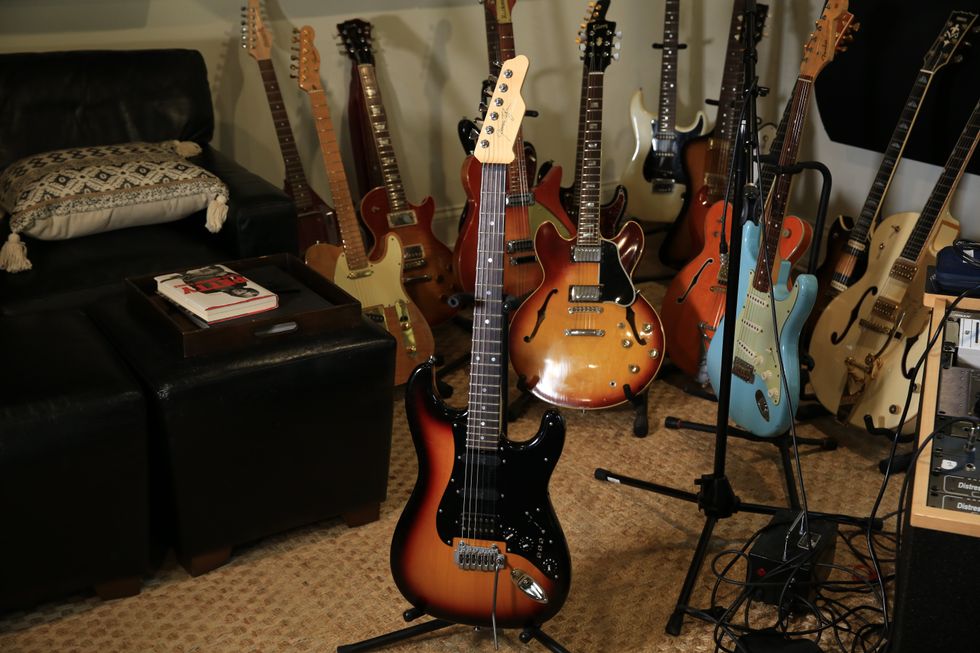
This James Tyler Strat, built specially for Huff by Tyler, is an exacting copy of his ’64 Strat, complete with Tyler’s signature mods.
Revv Your Engine
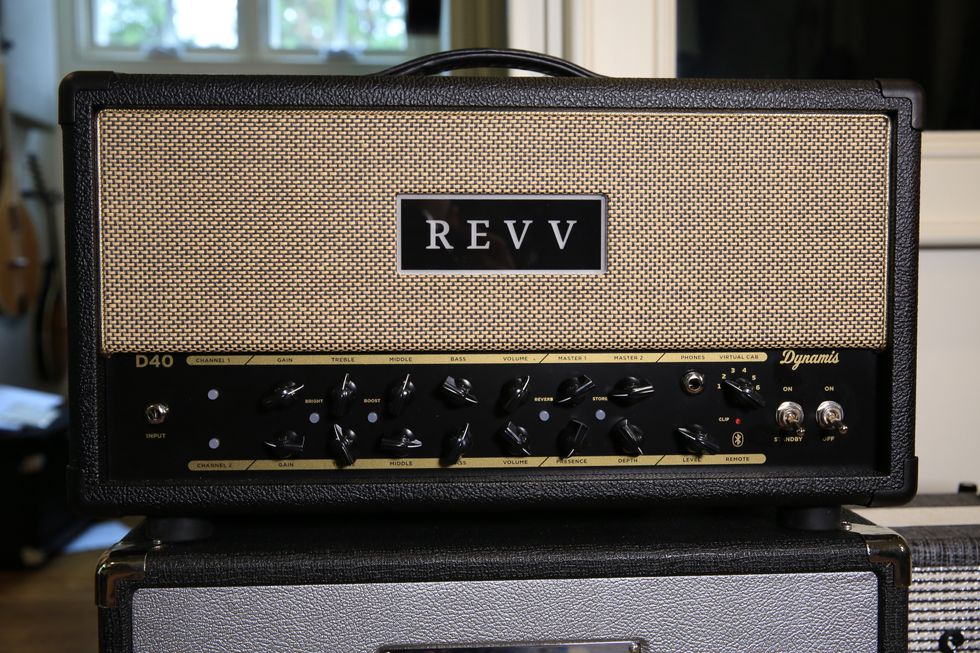
Derek Eastveld, owner of Winnipeg, Manitoba-based amp company Revv, brought this Dynamis D40 head for Huff to try out, and it clicked instantly; Huff wrote a song on it for his solo record. It runs through a Little Walter 2x12 open-back cabinet.
Dann Huff’s Pedalboard
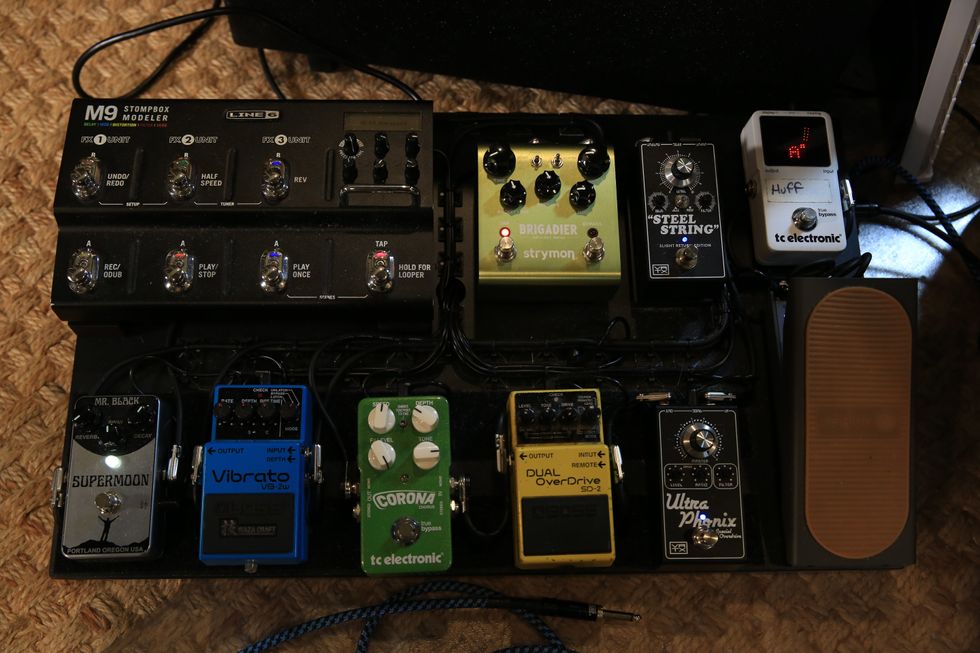
Huff doesn’t need a spaceship to get where he needs to go. Along with a TC Electronic PolyTune and a Lehle volume pedal, he runs a Vertex Effects Steel String (Slight Return Edition), Vertex Ultraphonix Mk II, Boss SD-2, TC Electronic Corona, Boss VB-2w, Mr. Black SuperMoon, Strymon Brigadier, and Line 6 M9 Stompbox Modeler.

Did Hendrix Play This Rare 1968 SG Custom?

Imagine you’re a well-heeled guitar collector. A dealer pops open a case to reveal this stunning beauty of a 1968 Gibson SG Custom. Its aura is world-historically cool. It must be something special. “Is that,” you think, “an original Pelham blue finish? A factory Bigsby?”
You can hardly contain yourself as it is. The gold hardware has a patina befitting its age. The period-correct nylon saddles are in great shape (“A few have been replaced? No big deal”). And then, the dealer says, “You know, there’s exactly a 50 percent chance that Jimi Hendrix played this.” Well, as Dirty Harry said, “You've gotta ask yourself a question: ‘Do I feel lucky?’”
Such is the dilemma for wealthy guitarists around the world, especially, we can imagine, the left-handed ones.
Because this ’68 SG Custom—or its twin sibling, the second of only two ever built with these same specs—has been traced back to a legendary jam session with Jimi Hendrix, B.B. King, and Elvin Bishop. And it’s recently been unearthed and listed for sale by Reverb seller Imperial Vintage Guitars for the sum of $395,000, with as much evidence of its provenance as possible.
There are photographs that show Jimi playing such a guitar that night. The late photographer’s brother has written a letter about the photographer’s career, his relationship with the guitarist, and original prints of that fateful jam.
And Matt Koehler—Gibson’s vice president of product and one of the company’s most avid, archive-diving history buffs—has signed a letter confirming that this is one of two never-replicated, left-handed, Bigsby-equipped, Pelham blue SG Customs that Gibson ever built in this period.
Shipped out within a few days of each other in May 1968, Koehler writes, “The two guitars were definitely related, and this combination of features does not appear anywhere else in our ledger books.”
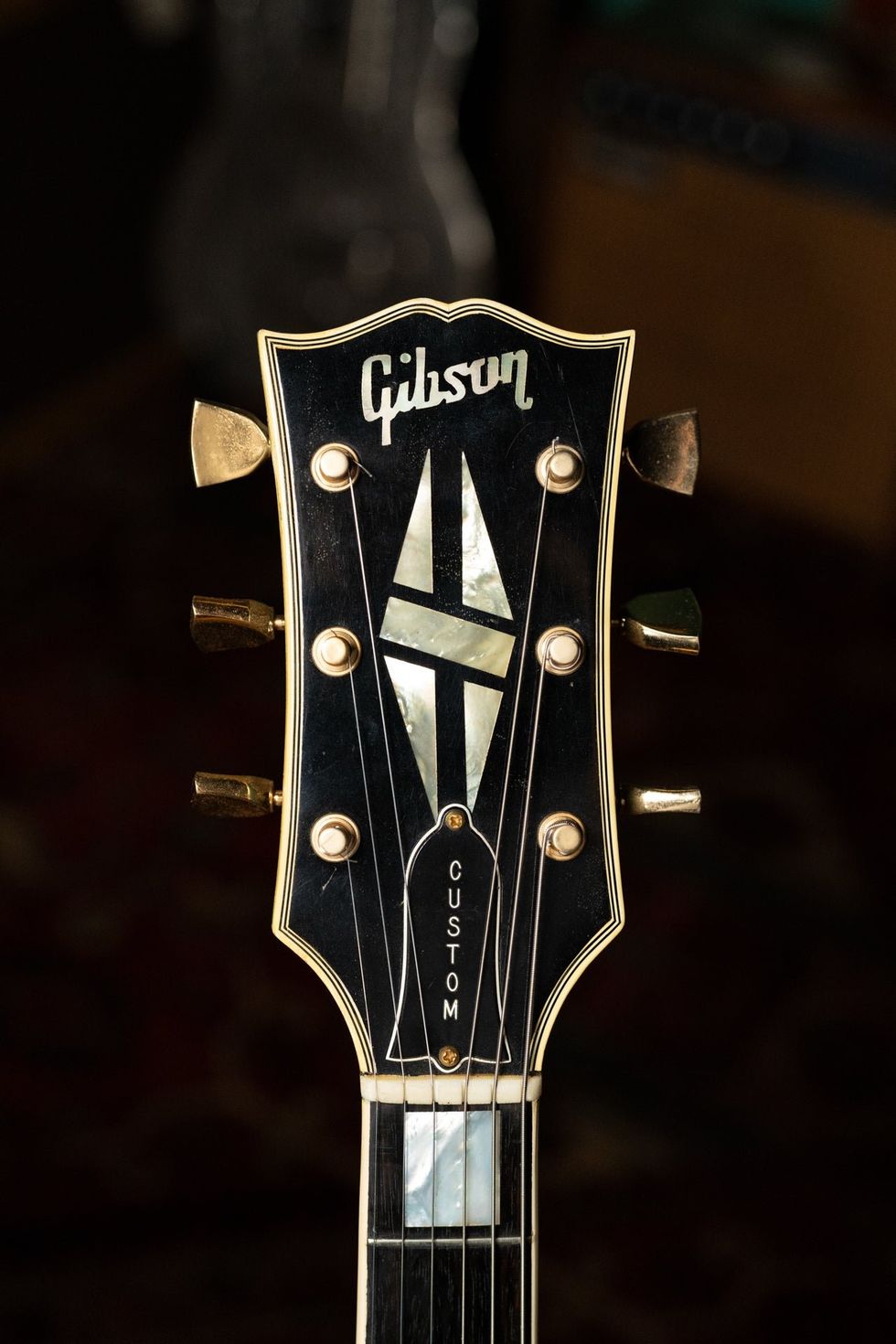
So, what does that mean to the would-be buyer? If it were a hand of poker, we could call this ultra-rare vintage Gibson a flush, no matter what becomes of the extra provenance. As Imperial Vintage Guitars writes in its listing, “643 Les Paul Standards were made in 1959. Only two of these SGs were ever made, period. This guitar may not be as popular as a 1959 Les Paul, but it’s certainly more rare!”
If it’s the one Hendrix played, that makes it a whole lot rarer yet. That turns our flush into a royal flush.
Let’s step back and assess the guitar in front of us: It is, of course, a three-humbucker SG Custom. Those humbuckers, given the year, are not Patent-Applied For (PAF) pickups, but Patent No. instead.
They’re embedded in the middle of a batwing pickguard (which, as the evolution of the angel wing design, debuted in 1966). The larger batwing allowed Gibson to drop the independent pickup rings and tenon cover found on earlier models.
Looking up the neck, you’ll see large, block mother-of-pearl inlays and the diamond headstock inlay that helped these SG Custom models stand out from their more affordable SG Standard counterparts. Turn it around and it does not have the peak of a neck volute found on models from the very late ’60s and early ’70s.
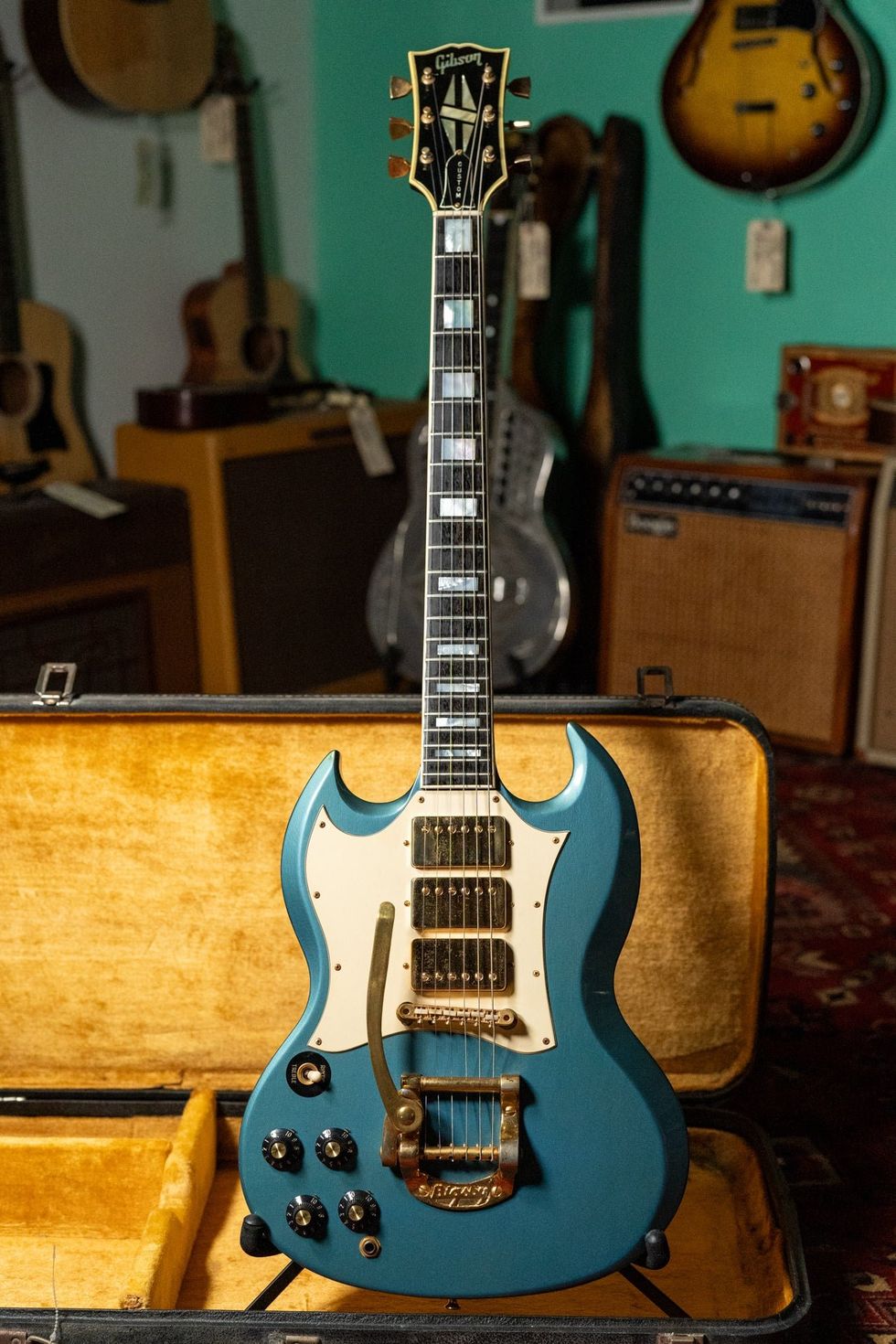
“This ’68 SG Custom—or its twin sibling, the second of only two ever built with these same specs—has been traced back to a legendary jam session with Jimi Hendrix, B.B. King, and Elvin Bishop.”
Add to this the aforementioned factory Bigsby, custom finish, and left-handed build, and you’ve got yourself a truly one-of-a-kind guitar. Or, rather, two-of-a-kind. Which is quite the conundrum when it comes to valuing the guitar.
On one hand, 1960s SG Customs are all valuable. These were high-end models created during the Golden Age of Gibson, after all. (In ’68, this special order would have been a bit north of production-model SG Customs, which went for $495.) But while more rare than the burst-year Les Paul Standards, they haven’t appreciated anywhere near as much in value.
No ’60s SG Custom with such rare features or historic provenance has ever sold on Reverb. What we do know is that the more standard-fare of this classically tony line will go between $7,000 and $25,000. How much more valuable is a one- or two-off custom combination of specs? Well, “more,” would certainly be a fair answer.
But there’s an order of magnitude of difference between this and the territory reserved by original bursts (which can easily fetch half a million or more), or, for that matter, the larger-than-life sums paid in recent years for celebrity-played guitars, like Kurt Cobain’s “Unplugged” Martin D-18 ($6 million) or his “Smells Like Teen Spirit” Mustang ($4.55 million), Eddie Van Halen’s “Hot For Teacher” Kramer, or David Gilmour’s Black Strat ($3.9 million).
In this context, the $395,000 asking price almost splits the difference between a “regular” SG Custom of its era and a guitar owned by a world-renowned artist. So the question of whether Jimi Hendrix actually played this SG or not becomes incredibly relevant, one way or another.
So, well-heeled collector, ask yourself again: “Do I feel lucky?” Well, do ya punk?
Sources: American Guitars: An Illustrated History by Tom Wheeler, Gruhn's Guide to Vintage Guitars, Reverb's "The 5 Most Expensive Guitars Ever Sold" article, Reverb Price Guide sales data, SG Wiki.“These instruments are extensions of our musical souls”: Nancy Wilson’s stolen custom Telecaster has been found by police – but the search for a second missing Heart instrument goes on
“Prices will rise and we may be facing mass layoffs”: why boutique pedal makers fear tariffs will destroy the entire US pedal industry
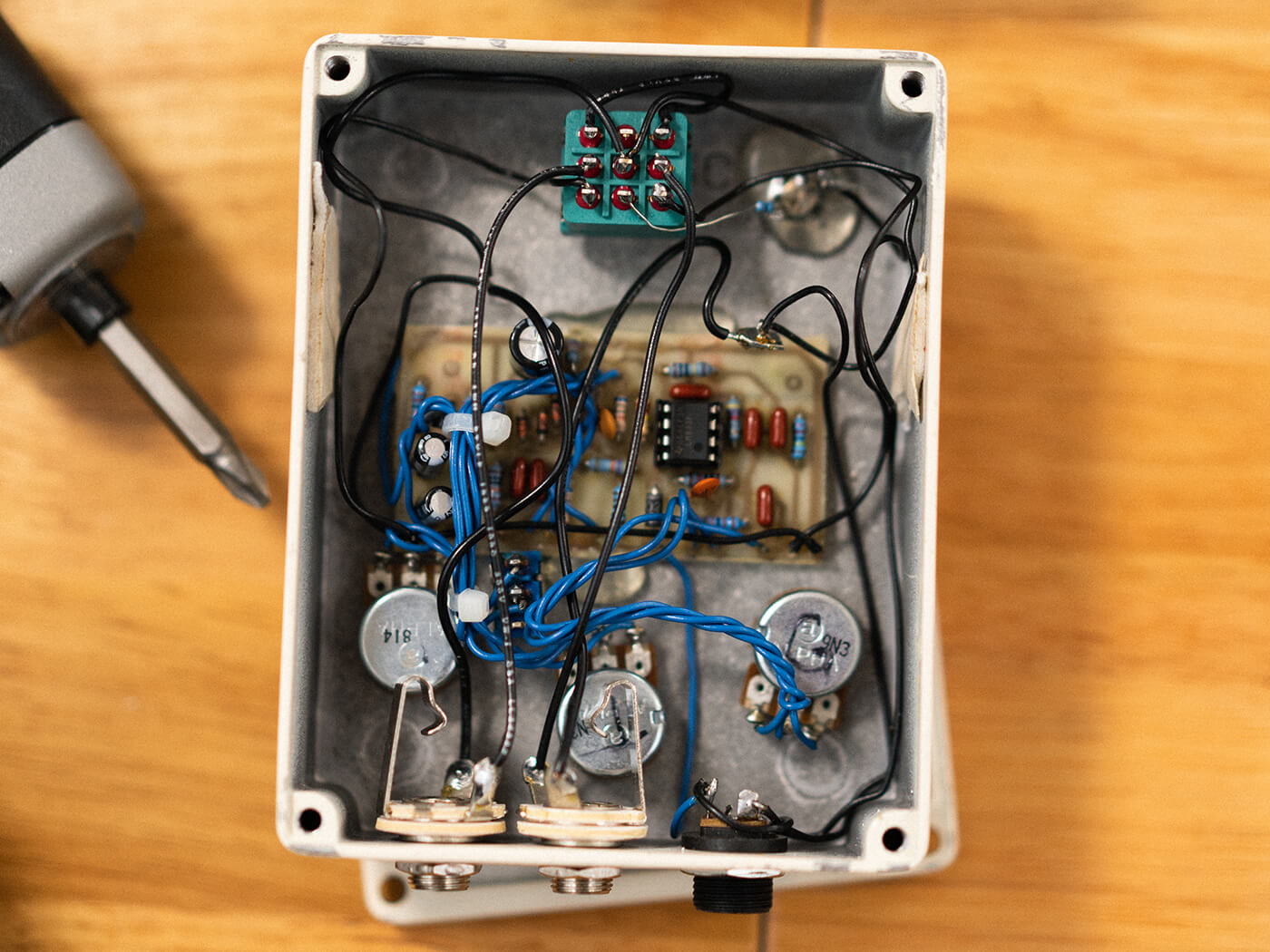
Since President Donald Trump took office for a second time in January 2025, the economic landscape of the USA has changed dramatically. The new tariffs on global imports introduced by the administration in its first few weeks gained huge headlines and publicity at the time. But as media attention has shifted to the other chaotic events that have characterised the administration’s second term, it has been easy to forget that the impact of these tariffs are still being keenly felt by businesses big and small.
In the guitar world, it has led to many of the major guitar brands working together to lobby representatives about issues regarding tariffs on imported tonewoods. But what about the small businesses that underpin a huge portion of the US guitar industry, particularly the boutique pedal world?
Some of the most beloved and famous names in effects have told us that they are now facing a harsh, ever-changing landscape that’s impossible to plan for – and could mean wide-scale layoffs, off-shoring production, drastic price increases or even closure.
One person who has been incredibly vocal about the hardships the tariffs have brought about is EarthQuaker Devices CEO Julie Robbins, who has become an unofficial spokesperson for dozens of makers in the US who are becoming increasingly concerned.
“We have delayed new product launches, or scrapped them entirely,” Robbins tells us. “Our industry is driven by new product launches, so this makes hitting our sales and revenue goals much harder in this climate.”
Through interviews with Robbins and figures from over 30 other boutique pedal, amp and pro audio makers in the USA, we’ve built an unflinching and alarming picture of the current mood in the industry.
Over the coming weeks Guitar.com will explore in detail how tariffs are currently undermining the business models of the entire US boutique pedal industry, but in this introductory article we’re aiming to sound the alarm on what is an existential threat to a vibrant and beloved community.
“We have stopped hiring, including cancelling open positions,” Robins explains. “We will have no choice but to implement a reduction in staff if current conditions continue. This is a devastating thought as our employees are our most valuable asset and losing their income and benefits will put them and their families in a place of hardship.”
For many figures that we spoke to, the story was similar – layoffs, off-shoring and closure were consistently raised as real possibilities.
Levelling the playing field
Since the tariffs were introduced in February, sourcing the basic elements required to make effects – PCBs, resistors, capacitors, potentiometers and transistors – has suddenly become extremely challenging. One of the stated goals of the tariffs is ostensibly to ‘level the playing field’ by bolstering US manufacturing – but there are no domestic manufacturers for many of these vital components. While most of the respondents expressed a willingness to buy American if they could, they’re currently in a compromised position – how do you source resistors and potentiometers from a country that doesn’t make them?
In the rare cases where there are domestic sources for these components, pedal makers face such an extreme increase in costs that their product is no longer viable. Alternatively if a maker instead continues to import, prices spiral upwards unpredictably – tariffs are changing weekly, sometimes daily. How do you run a business when you don’t know whether an order of 5,000 footswitches will cost you $6,000 or $20,000 depending on the week?
We’ve spoken to figures from brands including EarthQuaker Devices, Cusack Music, Keeley Electronics, Walrus Audio, JHS, Hologram Electronics, Death By Audio and Mission Engineering. Every single one of these makers has been negatively impacted by the tariffs in meaningful ways. Some are even contemplating closure.
Despite this, the wider online guitar culture has seemed reluctant to acknowledge the stark reality of the situation. No one wants to think we’re actually seeing an epoch shift that’s destructive enough to threaten the existence of our favourite pedal brands. But as these leaders have told Guitar.com– unless things change, soon, that’s exactly what we are seeing.
So what have makers said about the tariffs?
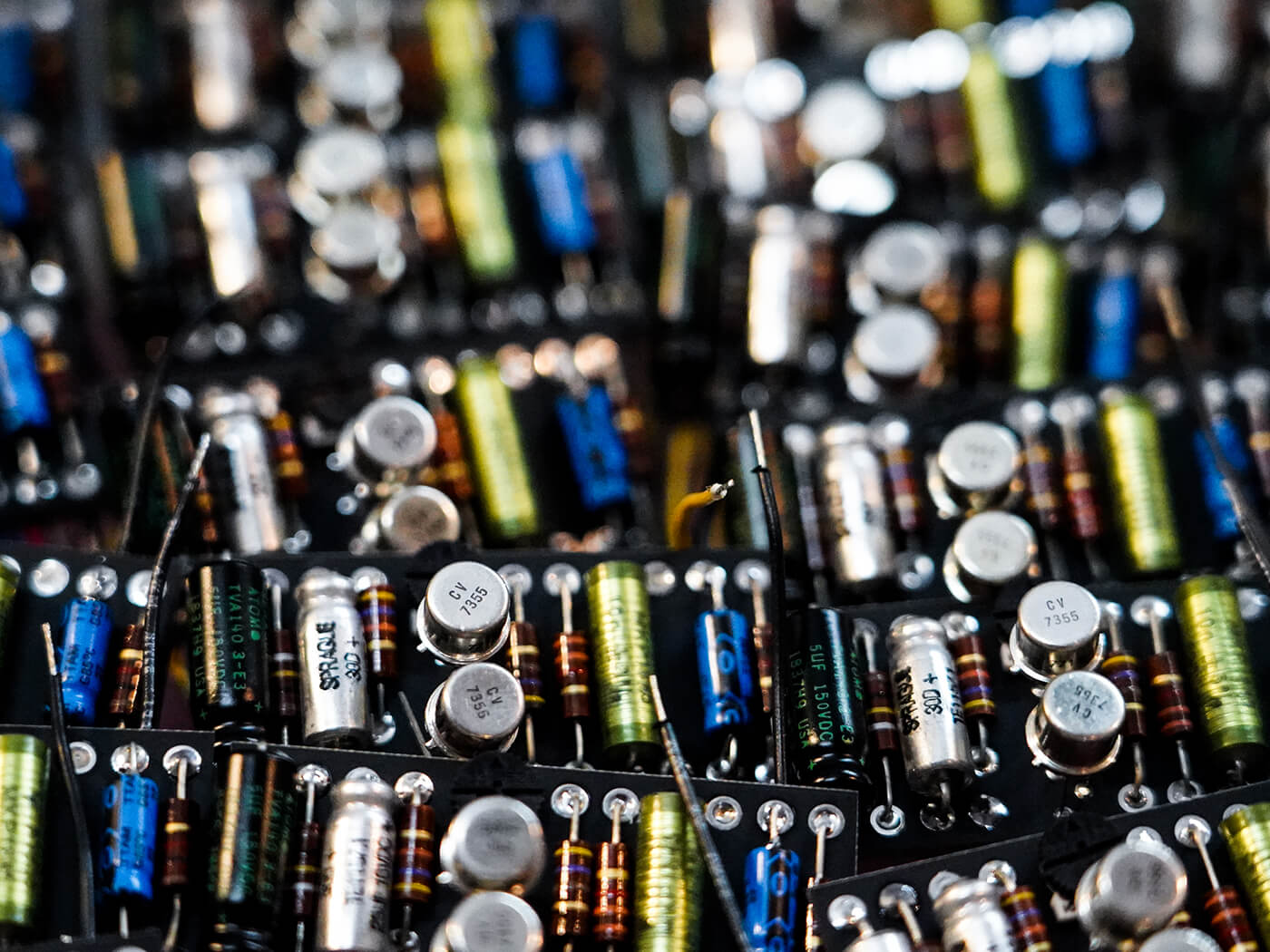
Every single figure we spoke to describes a significant negative impact from the tariffs. In part this comes from the huge increase in the price of imported parts. But it also comes from how the wildly fluctuating tariffs have made it impossible to plan.
This has already impacted consumers – multiple brands, including JHS and EQD, have delayed new product launches thanks to the tariffs, as they’re just unable to price them appropriately for the spiralling costs. The stress of the instability is keenly felt, too – let’s not forget that even the bigger companies in this space are still relatively small businesses, and some are solo operations. “It’s a significant drain on time and resources that are hard to quantify in terms of dollars,” admits Keeley founder Robert Keeley
Some of the impact can be quantified, however. JHS Pedals’ Steve Offut puts some numbers on it: “A standard stomp switch used to cost around $1.10-$1.50 before tariffs,” he says. “At one point, that price surged to over $3-4 due to the 180% tariffs. Other raw materials and electronic components have generally doubled or tripled in price – including the combined impact of tariffs and cost increases – if sourced from China.”
JHS uses a lot of footswitches a year – roughly 100,000. Tariffs remaining this high would mean an extra expense of $200,000 annually, just for a single component. Now apply that to audio jacks, resistors, capacitors…
Companies have in many cases been thrown into complete limbo by the chaos. EveAnna Manley of Manley Laboratories notes that tariff rates have changed “50 times in the past two months”. As a result, her company has larger-value parts orders on hold, trying to wait out the storm. “We couldn’t afford to pay 180% duties on an order of parts we had already paid $10K for, only to have that rate come down to 55% a week later. What kind of chump would we have been if we had paid out $18,000 to the Trump administration for that order?” she says.
But even if the USA does start its own domestic electronics industry, Steve Offut calls attention to how long that might take. “Companies like JHS Pedals could be at risk of failure if these ongoing tariffs persist long before a domestic electronics manufacturing plant could successfully be established,” he says. And – “even if such a plant were created, it would still likely depend on raw materials imported from China.”
If things don’t change? “By late 2025, we will be impacted heavily,” says JHS founder Josh Scott. “Prices will rise, sales will drop due to that and we may be facing mass layoffs by 2026 in a worst case scenario.”
For other brands, the worst-case scenario is starker still – EarthQuaker’s Robbins has previously raised that these measures threaten the very existence of the company, outside of laying off staff. This was echoed by multiple companies, who said that if things don’t change in the next year, closure is a real possibility.
Routes to survival
 Surface-mount soldering robots like the above can speed up PCB production, but investing in machines like these isn’t feasible for many small builders
Surface-mount soldering robots like the above can speed up PCB production, but investing in machines like these isn’t feasible for many small builders
Almost every brand we spoke to does all of its assembly in the US – a common exception was surface-mount components, as not every pedal maker can afford in-house SMT population. However, outsourcing more of their assembly processes overseas – perhaps all of it – is one route that companies are contemplating in order to survive the post-tariff US.
Walrus Audio’s Colt Westbrook, for instance, admits that “it would be cheaper to offshore manufacturing and pay tariffs on a finished product than it would be to source components, pay tariffs, and then pay for the US manufacturing model.”
However, Westbrook is understandably reluctant to change Walrus’ business model: “we could offshore our manufacturing and scale down to 8-10 employees, but job-making is my God-given passion. These are full-time W-2’d [salaried company employees] folks who have full health, dental, vision, matching 401(k), PTO, and free LaCroix in the fridge.”.
This is the cruel irony of the situation, of course. Brands are being forced to consider moving work overseas by measures that are ostensibly there to bolster the US economy, and ‘level the playing field.’ Many of the people that we spoke to were frustrated by this self-contradiction.
“We are committed to providing solid, stable jobs here in the US for as long as we can,” insists Ryan Shaefer, owner of Hologram Electronics. “But I imagine that if the tariffs persist, many companies will come to the same conclusion – the US is now the least competitive place on planet earth to manufacture something. How could a US company that has to pay tariffs on every single imported part hope to compete with companies outside the US that don’t?”
Offut writes that JHS isn’t making any immediate moves to offshore existing production, as the company has “a solid supply of materials and enough inventory to last us 8 to 12 months”. However he does admit that “overall, there is strong evidence that offshoring could emerge as the more cost effective option which may prove to have unintentional consequences of staff downsizing – the loss of American jobs – which I’m sure no administration is fond of.”
What can be done?
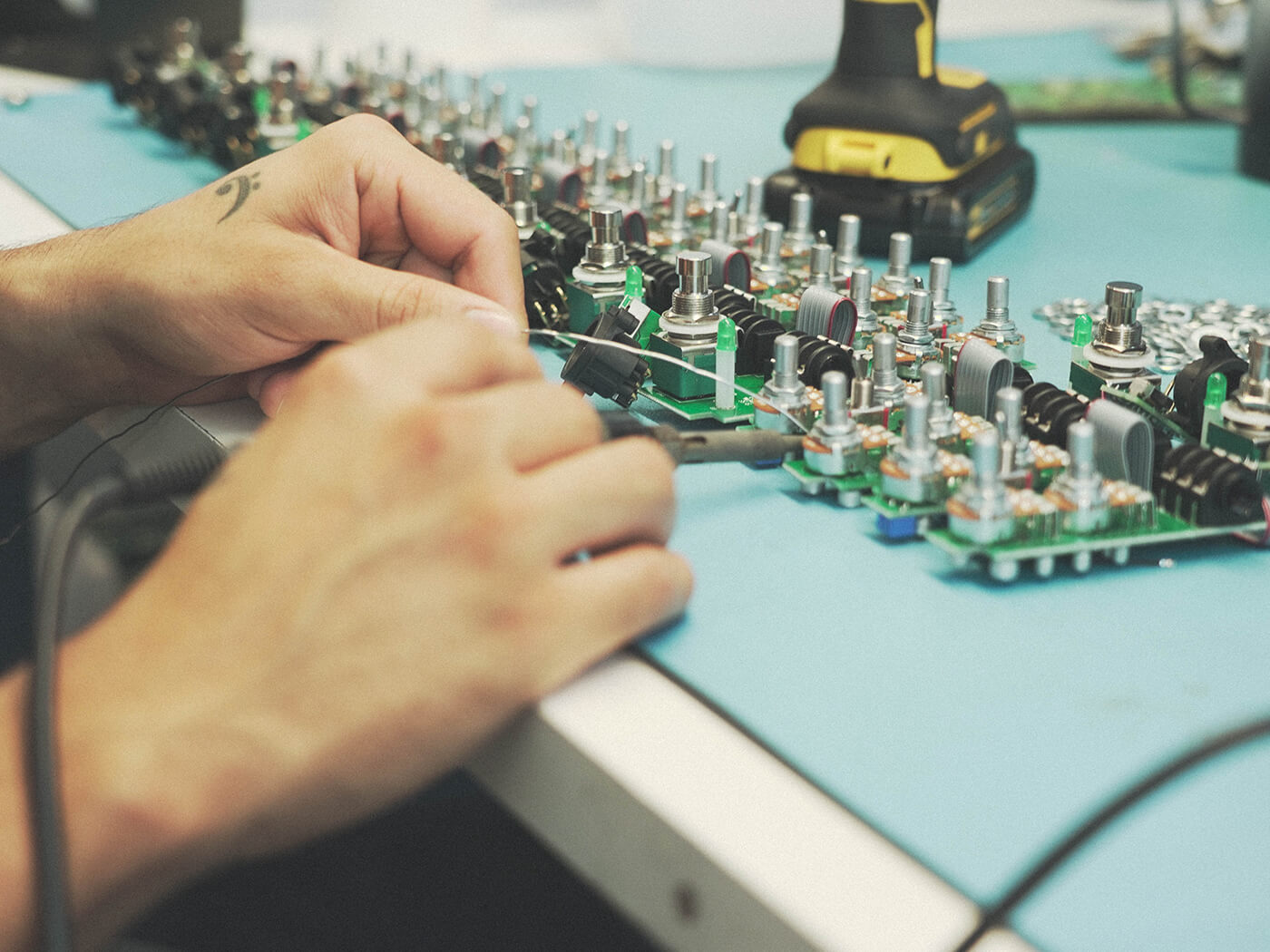
In the grand scheme of things, the impact on small electronics companies might not register highly on most people’s major concerns about the current US administration. But it is clear from what industry figures are saying – if things don’t change, the US pedal industry as we know it will start to collapse.
So if you’re US-based and value the output and indeed the attitudes of any of the companies mentioned, you should add the tariffs and their destructive potential to the things you’re hopefully already contacting your representative about.
Right now, however, lawmakers seem more inclined to ensure that everyone faces these tariffs, regardless of their impact. Ohio Senator Bernie Moreno recently blocked a bill that might have exempted small businesses, for example.
It also bears repeating that this needs to be talked about more. It is unprecedented to see this many major figures in our industry talk this candidly on the record about layoffs and closure. But it speaks to the severity of the situation at hand.
Burying discussion about this is not helpful, nor is denying the real problems people are facing. This is not some hypothetical worst-case scenario – it is happening now, and it is already starting to uproot an industry that all of us as guitarists and musicians care about.
Julie Robbins’ work and testimony in front of a Senate hearing about the impact of the tariffs is to be commended, of course – however there is more to be done. Industry figures spoke to us in huge detail about the challenges they’re facing, and in the coming weeks we will be exploring what they have to say further.
The US pedal industry has been the lifeblood of guitar culture over the last decade, but it’s one that’s being placed under existential threat thanks to Trump’s tariffs.
The post “Prices will rise and we may be facing mass layoffs”: why boutique pedal makers fear tariffs will destroy the entire US pedal industry appeared first on Guitar.com | All Things Guitar.
